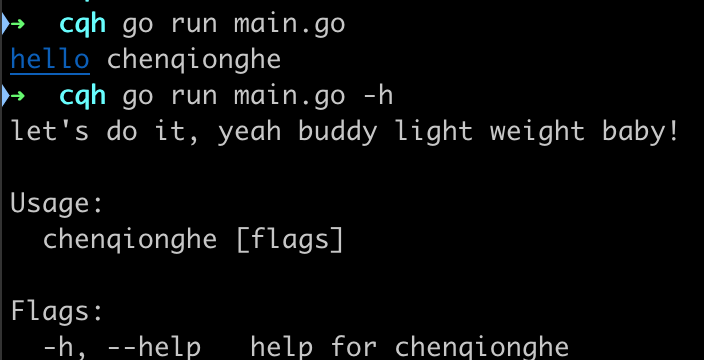SparkContext源碼解讀
- 2020 年 4 月 8 日
- 筆記
在SparkContext中主要做幾件事情,如下:
1 創建TaskSceduler
val (sched, ts) = SparkContext.createTaskScheduler(this, master, deployMode)
TaskSceduler在具體創建的時候,是由不同發布模式比如standalone、yarn、mesos決定的,返回一個SchedulerBackend.
private def createTaskScheduler( sc: SparkContext, master: String, deployMode: String): (SchedulerBackend, TaskScheduler) = { import SparkMasterRegex._ // When running locally, don't try to re-execute tasks on failure. val MAX_LOCAL_TASK_FAILURES = 1 master match { case "local" => val scheduler = new TaskSchedulerImpl(sc, MAX_LOCAL_TASK_FAILURES, isLocal = true) val backend = new LocalSchedulerBackend(sc.getConf, scheduler, 1) scheduler.initialize(backend) (backend, scheduler) case LOCAL_N_REGEX(threads) => def localCpuCount: Int = Runtime.getRuntime.availableProcessors() // local[*] estimates the number of cores on the machine; local[N] uses exactly N threads. val threadCount = if (threads == "*") localCpuCount else threads.toInt if (threadCount <= 0) { throw new SparkException(s"Asked to run locally with $threadCount threads") } val scheduler = new TaskSchedulerImpl(sc, MAX_LOCAL_TASK_FAILURES, isLocal = true) val backend = new LocalSchedulerBackend(sc.getConf, scheduler, threadCount) scheduler.initialize(backend) (backend, scheduler) case LOCAL_N_FAILURES_REGEX(threads, maxFailures) => def localCpuCount: Int = Runtime.getRuntime.availableProcessors() // local[*, M] means the number of cores on the computer with M failures // local[N, M] means exactly N threads with M failures val threadCount = if (threads == "*") localCpuCount else threads.toInt val scheduler = new TaskSchedulerImpl(sc, maxFailures.toInt, isLocal = true) val backend = new LocalSchedulerBackend(sc.getConf, scheduler, threadCount) scheduler.initialize(backend) (backend, scheduler) //Standalone模式 case SPARK_REGEX(sparkUrl) => val scheduler = new TaskSchedulerImpl(sc) val masterUrls = sparkUrl.split(",").map("spark://" + _) val backend = new StandaloneSchedulerBackend(scheduler, sc, masterUrls) scheduler.initialize(backend) (backend, scheduler) case LOCAL_CLUSTER_REGEX(numSlaves, coresPerSlave, memoryPerSlave) => // Check to make sure memory requested <= memoryPerSlave. Otherwise Spark will just hang. val memoryPerSlaveInt = memoryPerSlave.toInt if (sc.executorMemory > memoryPerSlaveInt) { throw new SparkException( "Asked to launch cluster with %d MB RAM / worker but requested %d MB/worker".format( memoryPerSlaveInt, sc.executorMemory)) } val scheduler = new TaskSchedulerImpl(sc) val localCluster = new LocalSparkCluster( numSlaves.toInt, coresPerSlave.toInt, memoryPerSlaveInt, sc.conf) val masterUrls = localCluster.start() val backend = new StandaloneSchedulerBackend(scheduler, sc, masterUrls) scheduler.initialize(backend) backend.shutdownCallback = (backend: StandaloneSchedulerBackend) => { localCluster.stop() } (backend, scheduler) case MESOS_REGEX(mesosUrl) => MesosNativeLibrary.load() val scheduler = new TaskSchedulerImpl(sc) val coarseGrained = sc.conf.getBoolean("spark.mesos.coarse", defaultValue = true) val backend = if (coarseGrained) { new MesosCoarseGrainedSchedulerBackend(scheduler, sc, mesosUrl, sc.env.securityManager) } else { new MesosFineGrainedSchedulerBackend(scheduler, sc, mesosUrl) } scheduler.initialize(backend) (backend, scheduler) //對其他資源管理方式(除了local和standelone{spark://}外的mesos,yarn,kubernetes【外部資源管理器】的資源管理方式)的處理。 case masterUrl => //這句很重要,實現了外部資源管理器,具體實現訪問為Yarn的YarnClusterManager val cm = getClusterManager(masterUrl) match { case Some(clusterMgr) => clusterMgr case None => throw new SparkException("Could not parse Master URL: '" + master + "'") } try { val scheduler = cm.createTaskScheduler(sc, masterUrl) val backend = cm.createSchedulerBackend(sc, masterUrl, scheduler) cm.initialize(scheduler, backend) (backend, scheduler) } catch { case se: SparkException => throw se case NonFatal(e) => throw new SparkException("External scheduler cannot be instantiated", e) } }
SparkContext這裡啟動TaskSchelerImpl之後,具體進行初始化任務的時候是通過以下程式碼調用的:
scheduler.initialize(backend)
TaskScheduler的Initalize方法:
def initialize(backend: SchedulerBackend) { this.backend = backend // temporarily set rootPool name to empty rootPool = new Pool("", schedulingMode, 0, 0) schedulableBuilder = { schedulingMode match { case SchedulingMode.FIFO => new FIFOSchedulableBuilder(rootPool) case SchedulingMode.FAIR => new FairSchedulableBuilder(rootPool, conf) case _ => throw new IllegalArgumentException(s"Unsupported spark.scheduler.mode: $schedulingMode") } } schedulableBuilder.buildPools() }
TaskScheluerImpl的一個重要功能就是決定job的調度順序,啟動任務推測執行機制。
另外在SparkContext中還有個地方調用TaskScheluerImpl方法:
_taskScheduler.start()
調用的方法如下:
override def start() { //調用SchedulerBackend.start()方法 backend.start() //在這裡會判斷spark的推測執行機制 if (!isLocal && conf.getBoolean("spark.speculation", false)) { logInfo("Starting speculative execution thread") speculationScheduler.scheduleAtFixedRate(new Runnable { override def run(): Unit = Utils.tryOrStopSparkContext(sc) { checkSpeculatableTasks() } }, SPECULATION_INTERVAL_MS, SPECULATION_INTERVAL_MS, TimeUnit.MILLISECONDS) } }


